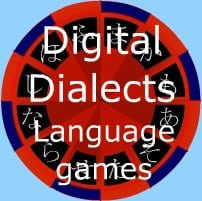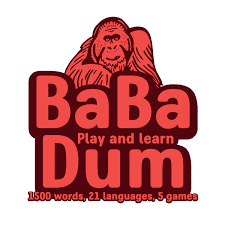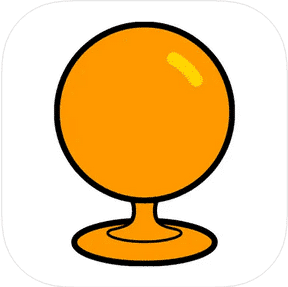23 Italian Learning Games

Today, you can learn Italian both offline and online in a multitude of ways—whether by listening to Italian podcasts and audiobooks or singing along to great Italian songs.
You can also learn Italian through games. Below I’ve listed 23 great games for learning Italian, so you can study while having fun.
Download: This blog post is available as a convenient and portable PDF that you can take anywhere. Click here to get a copy. (Download)
Group Games
1. “Sciarada” (“Charades”)
“Sciarada” is the Italian version of “Charades” but with a small twist. Contrary to the English version of the game, players in “Sciarada” are allowed to speak—in fact, they’re encouraged to, which is perfect for those wanting to practice their speaking and listening skills in Italian.
This game is recommended for intermediate to advanced learners but can be amended for beginners.
Like the traditional “Charades,” a player chooses a word and acts it out while other players try to guess it. As well as acting, players are allowed to use words to help them as long as they don’t use the word itself or cheat by using explanations like “fa rima con…” (“it rhymes with…”) or “inizia con la lettura…” (“it starts with the letter…”).
Points can be scored on an individual basis or in teams. In fact, playing in a team will be the most beneficial to beginner Italian learners. Try both variants and see who’s the Italian “Sciarada” master!
This game is a great way to learn new vocabulary in Italian, push the limits of your own Italian language knowledge and stretch your brain to get others to guess your word correctly.
2. “Acqua, Acqua, Fuoco, Fuoco” (“Hot and Cold”)
The Italian equivalent of “Hot and Cold,” “Acqua, acqua, fuoco, fuoco” is perfect to play in a small group and with beginner Italian learners.
To play, one person is designated as the leader and chooses an object in the room. One other player is the seeker. Their job is to move around the room and try to find the object that the leader has selected.
When the player is close to the object, the leader will say fuoco (fire), indicating that the player is “hot.” When the player is far away, the leader will say acqua (water), indicating that the player is cold.
To make things more interesting, the leader can use variants of fuoco and acqua to show varying degrees of closeness to the object. For instance, focherello (small fire) can indicate that the player is a little close to the object.
Once the object is found, the guesser must accurately name it in Italian.
This game is great for learning common vocabulary in the space where the game is being played. Play it in various locations like in the living room, kitchen or outside to maximize word possibilities.
3. “Telefono Senza Fili” (“Broken Telephone”)
Like the English game “Broken Telephone,” our third game is a hilarious way to practice Italian.
In a line or a circle, one player thinks up an Italian phrase and relays it to the next person by whispering it. The phrase makes its way through all the players until the last person, who then recites what they’ve heard.
The result is hilarious and often completely different from the original phrase.
This game is great for learning Italian vocabulary and practicing sentence structure. Further, it’s perfect for all levels of Italian—even beginners.
For advanced learners, try to create complicated sentences or write out Italian proverbs or idioms on pieces of paper that players can choose from at random.
4. “Stai Creando il Mio Amore per A” (“Creating My Love for A”)
This is a game all about creating sentences that begin with the same letter. It’s perfect for beginner learners who want to increase their vocabulary with common words and phrases.
For example, the players may decide on the letter A. Then, every player attempts to create a sentence using as many words as they can that start with A.
The player who manages to use the most words wins a point, and the game continues with a different letter.
This game is great because it allows learners to practice vocabulary as well as rack their brain for previously learned Italian words and sentence structure.
Make things more complicated by setting a word minimum: For example, make a rule that all sentences must have at least seven individual words.
5. “Venti Domande” (“Twenty Questions”)
This guessing game is like “Sciarada” in reverse.
Each player is assigned a person, place or thing, but they’re not told what it is. By posing questions to each other, players must guess what they’ve been assigned.
If a player exceeds 20 asked questions, they automatically default on their turn and must wait until the next round to try to guess again.
This game is great for intermediate Italian learners who have a good grasp of vocabulary and basic grammar. It’s also perfect for practicing Italian question and answer structures.
Amp up the challenge by focusing exclusively on things in Italian culture such as Leonardo da Vinci or il Colosseo (the Colosseum).
6. “Mannaro” (“Werewolf”)
The sixth game on our list is by far the most complicated, so it’s recommended for intermediate and advanced players.
A spin on the English game “Werewolf” that’s taking party games by storm, “Mannaro” requires players to take on a persona and role play. This game is great in settings with a larger group (seven to 10 people) who have pretty good fluency in Italian, and it’s fantastic for practicing spontaneous speech.
To begin, assign one player to be the leader who doesn’t play but rather oversees the game.
Using pre-made slips of paper, each player is assigned either buono (good) or cattivo (evil). One player is assigned il mannaro (the werewolf). Everyone keeps their identity secret.
During each game “night,” all players close their eyes and the werewolf secretly indicates to the leader who they want to “kill” that night. During each game “day,” players work together to achieve different goals: The players who are cattivo try to assist the wolf in killing all the buoni players, while the buoni players try to stop the mannaro.
Each day culminates in a trial, during which all good players vote to eliminate the person they think is the mannaro, while all evil players try to take out the good players, instead.
The game ends in two ways: either all the good players are killed by the wolf (the cattivi and mannaro win), or the good players correctly identify the werewolf and convict him/her at trial (the buoni win).
The trick is to fast-talk your way through the day periods without giving away your affiliation. It’s tough but incredibly fun!
Online Games
7. Digital Dialects
Its extensive repertoire of Italian games is extremely useful for beginner learners as well as those looking to brush up on their vocabulary.
Learners can choose between text or audio versions of matching games to reinforce vocabulary related to numbers, food and much more. Also, there are games for grammar topics such as verbs and practical topics like phrases and greetings, so you can put your newly-learned vocabulary into grammatically correct sentences.
Furthermore, Digital Dialects offers even more for learners who are way past the beginner’s stage. An Italian advanced learner’s page has games on Italian verbs and animals. But the fun doesn’t stop there! The “Links” page offers a great list of more Italian learning resources you can study further.
8. Learn Italian
Learn Italian is a great website that takes Italian grammar and vocabulary and gamifies the entire experience of learning these concepts. Essentially, Learn Italian is like an adventure video game where you learn an aspect of the language and then use it in your quest for Italian greatness.
Before each game, you choose a topic that you want to review or learn. Next, you take a short lesson on the topic. Once you’ve completed that, prepare to put your knowledge to the test in a game.
Learners can choose from any game they like: Mix and Match, The Beetle and the Bee, Pelmanism, Four in Row, Hangman or The Frog Flies. No matter which one you choose, each game is available for the specific vocabulary or grammar topic you’ve studied. And if you’ve had enough fun for the day, Learn Italian offers many multiple choice or written tests to test your proficiency.
9. Soft Schools
While not as comprehensive as some of the sites above, Soft Schools excels because of its simple, traditional nature.
Soft Schools provides a quick and easy way to learn and review Italian vocabulary. It includes convenient, straightforward games that allow you to learn crucial Italian words through repetition.
What Soft Schools lacks in complexity, it definitely makes up for in depth. Flashcard topics range from beginner words such as colors and animals all the way up to more specialized vocabulary like words for medicine and professions.
Learners can choose from flashcards, matching games and “scatter games,” where you have to drag Italian words to their meanings in English. The different games are available for all the Italian vocabulary on the site, so this is a great resource for Italian learners looking for a repetition system to really make vocabulary stick.
Lastly, Soft Schools also offers online quizzes on basic grammar such as regular verbs, articles and pronouns. This is a great way to test your knowledge of Italian and figure out which areas still need work.
1o. Syvum
Syvum’s list of Italian word games is probably one of the most extensive on the Internet. There isn’t an official count of the number of games they offer, but trust me: there’s enough to have you scrolling for days!
The games give learners the opportunity to review words prior to the game and get instant scores and corrections. You can choose between flashcards, matching columns, Hangman or fill-in-the-blank games, and play to your heart’s desire. Each game gives you a chance to change up the words included, so the possibilities are pretty much endless—Italian for days, remember?
Topics include basic Italian words all the way up to specialized vocabulary such as trees, herbs, medicine and the Chinese horoscope. There are even a selection of games that use Italian phrases rather than just words. Feeling stuck? This website’s got you covered. With each game, learners can review new words and even print worksheets and test papers.
11. Ba Ba Dum
Currently, Ba Ba Dum features 21 languages—with five games and 1,500 words for each language. To play, choose from one of five games on the upper left corner of the screen.
The first game asks you to match the word you see to its corresponding picture. The next one is essentially the same—except you match the word you hear after clicking the Play button.
The third one shows you a picture with four words or phrases underneath it, and you have to match the image to the right word or phrase. The fourth option gives you a picture with scrambled letters underneath it that you have to unscramble into a word or phrase that best describes the picture.
Finally, the fifth option allows you to cycle through all of the four games randomly, adding a bit more of a challenge to your language learning experience.
12. Hello-World
Don’t let the somewhat dated design of Hello-World fool you: I think it delivers on its promise to give you an immersive language learning and gaming experience.
As long as you select “Italiano” under “What language do you want to learn?” and under “Select your language,” all of your gaming options will be entirely in Italian. Also, don’t shy away from the children’s section—it can give you a taste of everything this site is capable of.
For example, in the game Collega i puntini (Connect the dots), when you “push” the yellow “123” button on the top left corner of the box and click on the numbers in order, you’ll hear the audio pronunciation of each number in Italian and end up “drawing” a train.
And if you click the multi-colored circles that appear afterwards, you’ll also learn the words for various colors in Italian—and color the train while you’re at it! Pretty cool, huh?
13. Quia
As I write this, Quia has over 640 quizzes for Italian learners. That’s a lot of material to have to breeze through, even if you have plenty of free time! And since the content is user-generated (meaning it’s likely to be constantly updated), you’ll probably have more to work on by the time you finish.
The great thing about Quia is that, if you have a very specific type of quiz in mind, there’s a good chance the site has it. For example, if you want a “Hangman” type game that’s all about imperfetto (imperfect tenses), you’re going to find it here. And if you’re looking to test your knowledge from a resource featured on the site, you’re bound to come across the perfect test here too.
14. GamesForLanguage
GamesForLanguage has Italian games for beginner to intermediate language learners.
Each game comes with bite-sized information on what it’s about, what level it’s for and the approximate time it will take you to play it. I suggest going through the vocabulary list included with each game before you play—those will help you tremendously!
And if you need even more help, you can listen to the podcast after each level to reinforce what you’ve learned.
15. Play Italian
On Play Italian, you’ll find all sorts of games designed to push your Italian language skills to the hilt.
You can do crosswords that center around a theme (like the kitchen or la cucina ), unscramble scrambled words (with hints, of course!) and even cryptograms where you have to replace numbers with the right letters to reveal a quotable quote from a famous person.
And if you’re an Italian proverbs aficionado, you can either put together a jigsaw puzzle or make sense of scrambled phrases to uncover these proverbs. Neat!
App Games
16. Duolingo
Duolingo is a wildly successful online program and language learning app.
Duolingo used to have learning “trees,” which have since been replaced by learning “paths.” Compared to the “tree” format, the “paths” are a bit more structured—you have to follow the steps as they show up on your screen.
At the same time, you don’t have to worry about accidentally going over skills that you’ve already learned. Also, learning features such as “Tips” are easier to find than before.
The best part is that the Duolingo experience is supported by its community, which allows learners to interact with others on a forum, get their questions answered, find a language learning partner and continue to learn.
If I’ve got you interested in Duolingo, I suggest reading this review to know more about what the app has to offer and whether it’s the best one for you.
17. FluentU
FluentU makes learning Italian as fun and addictive as a video game.
Although FluentU isn’t a gaming platform per se, you can get your fill of fun language lessons from its library of authentic Italian videos that include music videos, movie trailers, news and inspiring talks.
Every video comes with interactive subtitles that you can click to look up words you don’t know. And if you want to reinforce what you’ve learned, you can take any of the vocabulary quizzes that are personalized just for you.
18. Influent
If you’ve ever wished there’s a more fun way to acquire new vocabulary other than shuffling through the same set of flashcards again and again, Influent has you covered.
Using your game avatar, you get to explore a 3D environment where you can collect and select a bunch of objects. These objects come with names, action words and descriptions attached, and if you happen to pick them up, you can assemble these attachments into your very own vocabulary lists.
But that’s not all: if you want to practice and master these lists, you can switch to a Seek and Destroy mode that will take your language learning experience far beyond the usual “memorize a bunch of vocabulary and call it a day” strategy.
The best part? If you’re studying Italian and are playing this game on iOS or Android, you have access to everything for free! (The same goes for French and Korean learners, in case you’re interested. Everyone else has to shell out nearly a buck for each in-app purchase to unlock all of the game’s features—so lucky you!)
19. 50 Languages
On 50 languages, you start your language learning journey with a phrasebook—albeit one that’s a lot more interesting and user-friendly than the hardcover/paperback ones you’re probably used to.
For starters, you can pick from one (or more!) of 100 topics that range from the basics (how to make small talk in Italian) to the more technical aspects of the language (conjunctions, genitives and imperatives). When you click on each topic, you’ll be taken to a list of words and phrases and their corresponding Italian translations.
You can click on their audio and hear them pronounced by a native-sounding male and female voice. What’s more, you can click on the “More” option (no pun intended) and see what that word looks like in other languages!
In case you’re wondering where the “game” aspect of this is, you can choose between a memo game, “find the opposites” and crossword puzzles. (By the way, the memo game and “find the opposites” game have two-player options, while the crossword puzzles are designed for solo players.)
Whichever one appeals to you, I’m sure you’ll have loads of fun trying them out! And if you want more, you can always click “Tests” to review what you’ve learned on the site.
20. Lingo Play
Are you more into games with a social aspect like MMORPGs (Massively Multiplayer Online Role-playing Games)? If there’s a language learning app equivalent to World of Warcraft, Lingo Play comes close.
On this app, you can participate in weekly tournaments and compete with fellow Italian language learners from around the world. If you manage to get a winning streak for up to a month (or even an entire “season”), you can take home special prizes.
In fact, the first thing you’ll see when you log on to this app’s website is the “Play” option.
That’s not to say Lingo Play lets other learning options fall by the wayside. If you prefer a more traditional approach to your language studies, you can always click “Lessons.” And if you’re able to pass at least 300 tests with a minimum grade of A, you can get a foreign language certificate!
21. Sporcle
Whether you’re a beginner itching to test out your knowledge of Italian numbers, or a seasoned veteran who can easily tell which words refer to pasta and which ones are the names of famous composers, Sporcle probably has what you’re looking for. (Side note: I really like the one-line teasers for the quizzes on the homepage—they’re hilarious!)
The moment you start a quiz, a timer will start ticking. Unfortunately (or fortunately, depending on how challenging you want your quizzes to be), you can’t set how long the timer will go on for. Some quizzes last for just 30 seconds, while others will give you a little more breathing room and clock in at six minutes.
Be aware that some quizzes tackle multiple languages, so if you’re only studying Italian, you may want to skip those. If, on the other hand, you’re juggling more than just Italian at the moment, then by all means dive into these quirky quizzes!
22. Akinator
Have you ever had a genie try to read your mind? If that sounds like an oddly specific question, Akinator might just help you find the answer.
Or rather, it might give you multiple answers, depending on how well it manages to guess what’s on your mind. You can help out the genie by providing clues like the gender of the person you’re thinking of and what profession they’re in.
Of course, you can’t be too specific—the genie appreciates a challenge just as much as you do. (I mean, the expression on the genie’s face practically screams “give me everything you’ve got!”)
Oh, and you can do it all in Italian, allowing you to practice your ability to describe things in a way native speakers can understand.
23. LingoClip
How about singing your lungs out and picking up Italian words to woo your significant other? If that sounds like something you can get behind, LingoClip might be the game for you.
For the game mode, LingoClip allows you to choose between three options: multiple choice, fill in the blanks or straight-up karaoke. No matter which one you pick, I’m sure you’re going to enjoy the sight (and sound!) of your favorite Italian singers belting out your favorite songs in their native language.
In case you’re stuck on a word, no worries: there’s a built-in translator to help you move along. And if you have a competitive streak, LingoClip also gives you the option to compete with users from all over the world.
Why Learn Italian with Online Games?
Forget the usual mobile games. These Italian learning games can help you along in your language learning journey. Far from being a waste of time, games are a fun and effective way to practice what you’ve already learned and pick up new material.
Just ask kids! Playing is how children learn about the world around them, so why not apply that technique to your own learning?
Once you’ve studied a certain grammar topic or vocabulary theme in a textbook or self-study program, you can play these games to reinforce and review these topics and solidify your newly-acquired knowledge in a fun way.
Furthermore, that knowledge will become more easily available while using Italian in real life, because you’ll have practiced it in an amusing learning environment.
So, what are you waiting for? Get playing!
Download: This blog post is available as a convenient and portable PDF that you can take anywhere. Click here to get a copy. (Download)
























